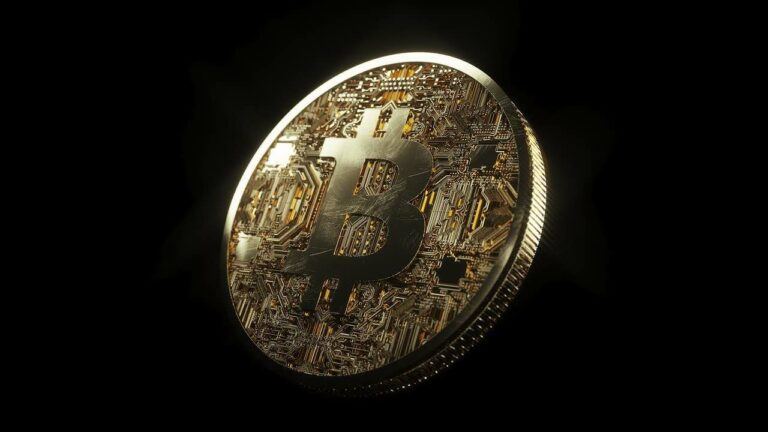Krueger on Bitcoin: A Shield Against Inflation’s Destructive Blows
Fred Krueger argues Bitcoin is the best inflation hedge today, citing how gold and the S&P 500 have preserved wealth since 1971 but fall short of Bitcoin’s potential.

Fred Krueger, a prominent entrepreneur and Bitcoin advocate, shared his views on inflation and the cost of living on December 30, 2024, over a pair of posts on the social media platform X.
Krueger is known for his background as a serial entrepreneur, having founded and sold multiple companies such as Fauve Software, iwin.com, and Traffic Marketplace. He is also the co-author of “The Big Bitcoin Book,” a widely recognized resource in the cryptocurrency community.
With academic credentials including a B.A. in Mathematics from Cornell University and a Ph.D. in Operations Research and Applied Mathematics from Stanford University, he has also worked in bond arbitrage at firms like Salomon Brothers and Greenwich Capital.
As a vocal Bitcoin supporter, Krueger frequently discusses economic issues and advocates for cryptocurrency as a solution to long-term financial challenges. In his analysis, Krueger compared the price increases of various goods and services from 1971 to 2024, highlighting the dramatic erosion of purchasing power over the decades.
Krueger noted that the costs of essentials like gas, food, housing, and education have skyrocketed, often increasing 10 to 20 times their original prices in 1971. For instance, he observed that the cost of a gallon of gas rose from 36 cents to $3.00, while a slice of New York pizza jumped from 25 cents to $5.00. Similar trends were noted for items like Big Macs, fine dining experiences, dental check-ups, and even luxury goods such as Porsche cars. He pointed out that the cost of education, such as attending Stanford University, saw a staggering 26-fold increase, going from $2,400 per year to $66,000.
In contrast, Krueger examined the growth in wages over the same period and found that salaries have not kept pace with the rising cost of living. He highlighted that the federal minimum wage increased only four times, from $1.60 to $7.25, while average salaries for office workers and professionals such as engineers, lawyers, and pilots rose by seven to nine times. Notably, he identified investment banking as one of the few professions where starting salaries have grown significantly, increasing 15-fold since 1971. However, Krueger emphasized that even these higher wage growth categories fall short of matching the 10-20x increases seen in living costs.
Krueger dismissed arguments that modern products, such as cars, have significantly improved in quality to justify their higher prices. Drawing from his own experiences owning Ford F150 trucks and Porsche 911s, he maintained that these products remain fundamentally the same. He also rejected the notion that inflation-adjusted numbers adequately explain the disparity between income growth and the rising cost of living.
In Krueger’s view, these economic realities disproportionately impact the bottom 50% of earners, who are unable to keep pace with escalating costs. He argued that while the top 1% have benefited immensely from this economic environment, the majority have been left struggling. Krueger extended this observation to Europe, stating that the situation is equally, if not more, severe there, with costs rising similarly but salaries lagging even further behind.
Krueger proposed Bitcoin as a solution for combating the effects of long-term inflation and preserving wealth. He acknowledged that historically, assets like gold and the S&P 500 have served as hedges against inflation, noting their impressive gains over the past 50 years. Gold’s value, he explained, increased from $35 an ounce to $2,600, a 74-fold rise, while the S&P 500 grew from $100 to $6,000, marking a 60-fold increase.
Despite these historical performances, Krueger expressed confidence that Bitcoin will outperform both gold and the S&P 500 in the coming decades, offering a superior hedge against inflation for those who adopt it.
While Krueger positions Bitcoin as the ultimate hedge against inflation, it’s worth noting that gold has served this role for thousands of years, far outpacing the relatively shorter histories of the S&P 500, launched in the 1950s, and Bitcoin, which debuted in 2009. Gold’s enduring value across civilizations has cemented its reputation as a safe store of wealth during economic instability. In contrast, Bitcoin’s role as an inflation hedge remains a modern development, with its long-term potential still under scrutiny given its relatively recent creation.
Disclaimer: The views in this article are from the original Creator and do not represent the views or position of Hawk Insight. The content of the article is for reference, communication and learning only, and does not constitute investment advice. If it involves copyright issues, please contact us for deletion.